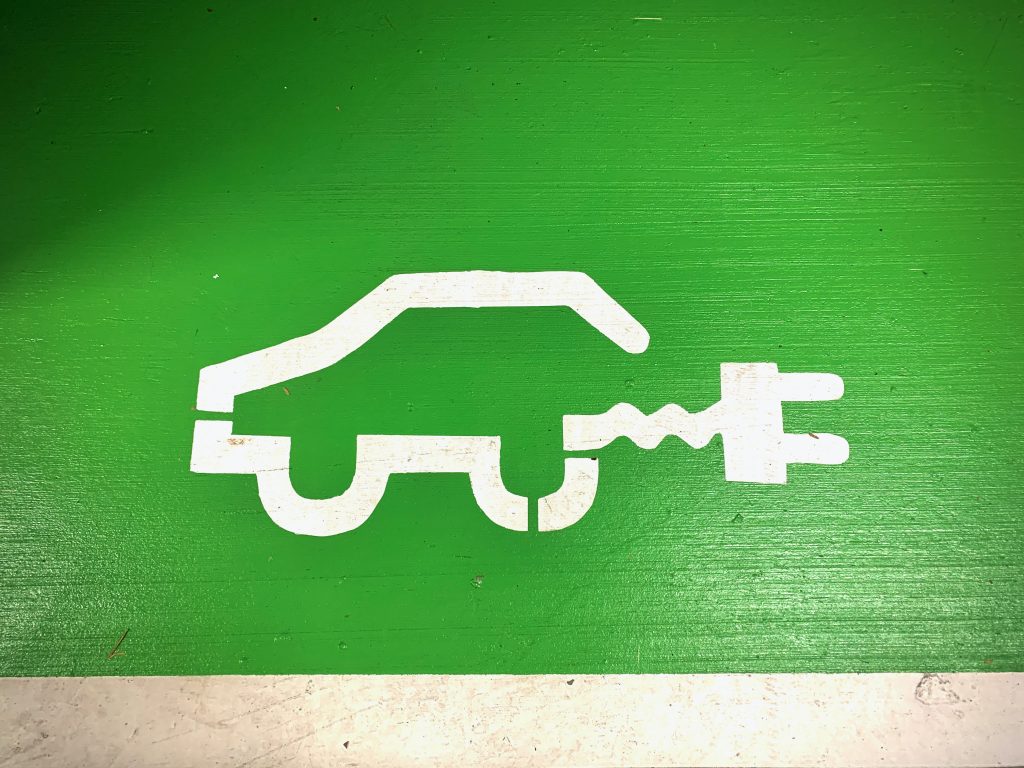
Green Capitalism: Sustainable Adaptation or Vanity Project?
Article by Harvey Hall
Photo by Ralph Hutter on Unsplash
Multinational corporations run entirely on renewable energy; electric cars and public transport in our cities; and the continuation of the comfortable consumerist lifestyle. Some see this as a promising vision of the future of our economic system. To so-called ‘green capitalists’, the only viable way to combat the climate crisis is to adapt the current neoliberal capitalist system by encouraging the innovation of green technologies and the integration of carbon neutrality into industry and business.[1] To others, the idea that we can combat the climate crisis without a complete overhaul of the current system is a joke. In fact, many would argue that our current reality puts us on track for the green capitalist ‘utopia’, and yet the climate crisis and numerous other ecological problems continue to worsen.
Multinational corporations such as Apple, Google, and EON claim to run completely on renewable energy sources[2]; car manufacturers are competing to produce the best-selling electric cars (which are growing enormously in popularity); and the quality of life in many developed countries continues to increase, untouched by measures taken by governments and corporations against climate change. Despite these seemingly positive alignments with green capitalist goals, global warming shows no signs of stopping: “June through August 2023 was the warmest period ever recorded and early July 2023 brought the Earth’s highest global daily average surface temperature ever recorded”.[3] Furthermore, activities that appear to be ‘green’ often turn out to be not so green at all. For example, while electric vehicles may help reduce emissions from the transport sector, the lithium-ion batteries used to power them require the destructive extraction of minerals from the Earth, have a short life span, and can only retain half of their contents when recycled.[4] A similar revelation can be found when looking deeper into ESG (environmental, social, and governance) financial funds, which underneath the surface are not really that green at all. If we take the Vanguard Fund as an example, 40% of the fund is allocated to technology and financials, whereas only 1% is allocated to energy and utilities[5], which is the most crucial aspect of solving the climate crisis. The trend even expands to famous climate activists: both Naomi Klein and Bill McKibben, who are praised for their work raising awareness of the causes and dangers of climate change, receive funding from major oil companies.[6] From the examples of electric vehicles and ESG funds, it is easy to see why many green capitalist activities and goals equate to nothing more than greenwashing.
The fact that these green activities that are compatible with our current capitalist system are not actually very green at all is evidence that capitalism and climate justice are not compatible. As long as companies are incentivised by profit, they will have selfish goals, and the concept of green capitalism only plays into this selfishness as it encourages corporations to engage in greenwashing to make themselves look more environmentally conscious than they are in order to encourage people to buy their products or invest in them, which raises their profits. Furthermore, the very nature of production under capitalism is inherently unsustainable. In his book ‘The Treadmill of Production’[7], sociologist Allan Schnaiberg outlines how the capitalist economic system requires constant economic growth which continues endlessly due to society’s needs and wants increasing exponentially. This means that we continue to use the Planet’s resources and pollute the environment. Therefore, capitalism inevitably results in environmental damage.
It’s clear to see that capitalism and climate justice cannot coexist. It is time to accept the fact that the concept of so-called ‘green capitalism’ is just a thin veil for the deceitful practice of greenwashing and that it is impossible to truly hold the ideals of climate justice at the centre of economic and political decision-making until there is a change in the dominant economic system. As it is currently, corporations and governments only engage in green capitalist practices for the purpose of self-interest and reputation, it would be a fair assessment to judge the current state of green capitalism as a mere vanity project. It is vital for the survival of the Planet and the human race that we find environmental solutions that go beyond the selfish goals of the current status quo and give us the power to have a genuinely positive impact on the environment.
Footnote:
[1] https://journals.sagepub.com/doi/10.1177/00380261221121232
[2] https://89initiative.com/green-capitalism-greenwashing-over-sustainability/
[3] https://academic.oup.com/bioscience/advance-article/doi/10.1093/biosci/biad080/7319571
[4] https://journals.sagepub.com/doi/10.1177/00380261221121232
[5] https://www.theguardian.com/commentisfree/2022/jul/26/failure-green-capitalism
[6] https://89initiative.com/green-capitalism-greenwashing-over-sustainability/
[7] https://www.routledge.com/Treadmill-of-Production-Injustice-and-Unsustainability-in-the-Global-Economy/Gould-Pellow-Schnaiberg/p/book/9781594515071#

0 Comments